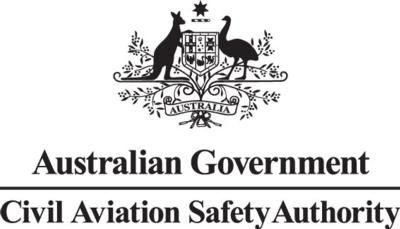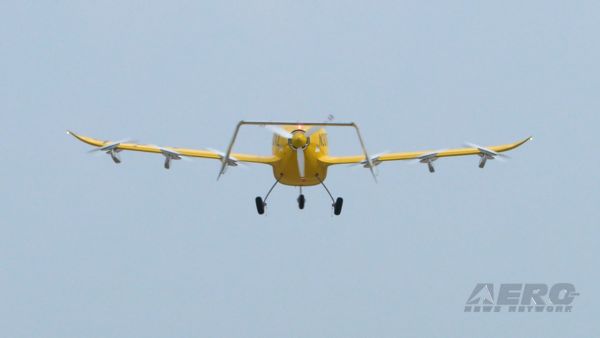Exemptions Developed With Extensive Input From Australian Aviation Community
Australia's Civil Aviation Safety Authority (CASA) is currently in the process of finalizing two exemptions which will provide alternatives to the rules relating to aircraft rating flight reviews and instrument proficiency checks from July 1. The exemptions have been developed after extensive consultation with members of the aviation community. Flight reviews for the low-level, private IFR and night VFR operational ratings remain unchanged.

Flight reviews and instrument proficiency checks for type rated aircraft were introduced under Part 61. The new rules were designed to address the risks associated with the complexity and high performance characteristics of these aircraft, and the need to ensure pilots who operate them maintain their proficiency. These checks are also consistent with international better practice, although there are differences in how some countries manage the maintenance of pilot competency.
While the rationale for introducing additional checks was sound, CASA does recognise that the new rules have resulted in significant costs for a number of pilots. The upcoming changes are designed to reduce the burden these policies are having on some industry participants, while ensuring the safety risks continue to be effectively addressed.
Read below to find out what’s changing. If you are a pilot who was planning to undertake a flight review or instrument proficiency check between now and 1 July, you might decide to wait until the exemption is in force and the requirements are simpler.
Flight review changes
Under Part 61, pilots need to have a valid flight review for each aircraft rating. That means pilots flying a class-rated aircraft need to have a valid flight review for that class rating and, if the same pilot flies a type-rated aircraft, they need to have a valid flight review for that type rating.
The new exemption will simplify the flight review requirements, and for some pilots reduce the number of flight reviews they need to complete. Pilots will only need to complete a flight review that was conducted in an aircraft of the same category within the previous two years. If it is a multi-engine aircraft, the flight review must have been done in a multi-engine aircraft of the same category. The flight review rules already recognise other activities that pilots complete such as flight tests, proficiency checks and certain training, all of which satisfy the flight review requirement. The same rules apply under the exemption.
For example, a pilot completing an instrument rating proficiency check in a multi-engine helicopter would have a valid flight review for all helicopters, without having to do a separate helicopter flight review in a single-engine class-rated helicopter (please note there no changes to the R22/R44 biennial flight review requirement).
Flight reviews for the low-level, private IFR and night VFR operational ratings remain unchanged.
Instrument proficiency check changes
Under Part 61, to exercise the privileges of an instrument rating, pilots need to have completed an instrument proficiency check (IPC) in the previous 12 months – regulation 61.880. To exercise the privileges of a pilot type-rating under the instrument flight rules (IFR), pilots need to have completed an IPC in an aircraft covered by the type-rating aircraft in the previous 24 months – regulation 61.805. For type-rated single-pilot turbojet aeroplanes, the IPC needs to have been done in an aircraft covered by the type-rating as a single-pilot operation in the previous 12 months.
The exemption doesn’t change the annual instrument rating IPC requirement when it comes into effect on 1 July. Pilots still have to complete an annual IPC that was conducted in an aircraft of the same category, and to fly a multi-engine aircraft under the IFR, the IPC must have been done in a multi-engine aircraft of the same category.
However, under the exemption, instead of having a valid IPC for a type rating, pilots will only need to have completed an IPC in the previous 24 months that is relevant to the aircraft being flown. There are three safety criteria: whether the aircraft is type-rated, whether it is multi-crew certificated, and whether it is a turbojet aeroplane to be flown single-pilot.
Further information for the aviation community is currently being developed in preparation for both the flight review and instrument proficiency check changes, and will be available via the CASA website from 1 July. This will include revised information sheets, an updated CASR Part 61 Licence Instruction Guide and tables to help pilots determine which aircraft they should undertake their IPCs in.
(Source: CASA news release)
 Senator Pushes FAA to Accelerate Rocket Launch Licensing
Senator Pushes FAA to Accelerate Rocket Launch Licensing Classic Aero-TV: RJ Gritter - Part of Aviations Bright New Future
Classic Aero-TV: RJ Gritter - Part of Aviations Bright New Future Aero-FAQ: Dave Juwel's Aviation Marketing Stories -- ITBOA BNITBOB
Aero-FAQ: Dave Juwel's Aviation Marketing Stories -- ITBOA BNITBOB ANN's Daily Aero-Linx (10.27.24)
ANN's Daily Aero-Linx (10.27.24) ANN's Daily Aero-Term (10.27.24): Clearance Void If Not Off By (Time)
ANN's Daily Aero-Term (10.27.24): Clearance Void If Not Off By (Time)



